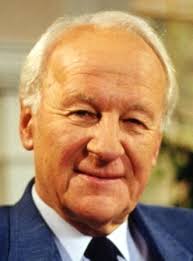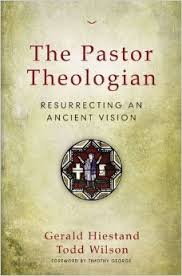|
Earlier this week I saw an article listing the "Most Highlighted Kindle Quotes of All Time" (per Amazon) and the quote that topped the list was spoken by Katniss Everdeen in the popular book Catching Fire. Here's the quote, highlighted by almost 18,000 Kindle users: “Because sometimes things happen to people and they’re not equipped to deal with them.” So how does Katness Everdeen reinforce the value of the Institute? This quote reminds us of the importance of having a strong foundation. The quote resonates with us, because we all know things have happened in our lives - or will happen in our lives - that we don't feel fully equipped for. We simply can't predict every situation we'll ever face. Yes, Katniss, sometimes things do happen to people and they're not equipped to deal with them.
But that doesn't mean we shouldn't (or can't) lay a strong foundation. Foundations matter. A strong foundation can give us footing and stability when the things we never could've guessed present themselves. Strong foundations can help us stand firm - even when things happened we're not fully equipped for. Strong foundations help us react wisely - even when the unexpected arises. This sort of footing is exactly what our Brookside Institute classes aim to offer those seeking to build and reinforce foundations of the Christian faith. Hope to see you in a class soon!
0 Comments
Talk with someone who's been following Jesus for a while, and it's likely they'll know Ephesians 2:8-9: "For it is by grace you have been saved, through faith - and this not from yourselves, it is the gift of God - not by works, so that no one can boast."
And these two verses ARE worth knowing! These verses communicate great truth about God's grace, the inability of our works to make us right before God, and our response of faith. Earlier this week I was re-reading all of Ephesians chapter 2 (context is important!) and was reminded that - as great as Ephesians 2:8-9 is - when we include the surrounding context these verses are even better than we may originally think. So why is the truth we discover Ephesians 2:8-9 even better than we think? Let's let the rest of the chapter answer that question: Reading commentaries can be a great way to grow in our knowledge of (and love for!) God and His Word. I was recently reminded of the value of reading commentaries in this excerpt on Ephesians 3:17-18 from John Stott's God's New Society: The Message of Ephesians (InterVarsity, 1979), p. 137:
Looking for some good Bible study helps for yourself? Check out BestCommentaries.com for some good commentaries, or check out some online Bible Study helps and a list of helpful theological resources I've highlighted on this site!
Let's start this post with a quick word association game: What comes to your mind when you hear the word "pastor"? An evangelist? A counselor? A speaker? An organizational leader or entrepreneur? A moral example?
All of these roles have their place in pastoral ministry and local church leadership. Gerald Hiestand and Todd Wilson want to make sure one other component of pastoral ministry isn't ignored or forgotten amidst these other roles, though - the role of "pastor theologian." To make their case, they've written a brief, accessible book advocating for the essential and valuable contribution a "pastor theologian" makes to healthy local church life. Pastor Kevin DeYoung's Taking God at His Word: Why the Bible is Knowable, Necessary, and Enough, and What that Means for You and Me is available for FREE E-BOOK DOWNLOAD for a few more days (through July 14, 2015).
Before I direct you to the link where you can access this e-book, let my quickly explain why this offer is definitely one to take advantage of (and then to follow through on by reading the book!). Here's the reason: As we seek to know and study and obey the Bible, we can't neglect the mindset with which we approach God's Word. DeYoung's book helps us with that in accessible, accurate, and profound ways. For a review I did of Taking God at His Word shortly after it was published, click here. OK - 'nuf said. Here's a link to the offer from Crossway Publishers where you can read a bit more and access the books: One of the top five questions I get (and get again and again) as a pastor surrounds how we make sense of God's sovereignty on the one hand and human freedom (or responsibility) on the other. The question usually goes something like this: "If God is absolutely in control of everything, how can humans be free?" Or "How can God hold us responsible for choices He's ultimately in control of?"
I'm not going to solve this mystery here. (There's my disclaimer!) But I do want to include an excerpt about this topic from Against the Flow by John C. Lennox (Professor of Mathematics at the University of Oxford and Emeritus Fellow in Mathematics and Philosophy of Science at Green Templeton College). You can find out even more about John Lennox and what he's doing here. I intend for this to be good food for thought as we consider and process this mystery of God's sovereignty and human responsibility: Based on the number of "hits" each month, here are the top 5 posts here on the Brookside Institute blog for the last six months - since January 2015..
Did you miss any of these? Click on any of these "Top Posts by Month from January-June 2015" to be taken to the post, and check 'em out! (It's not too late!) The recent SCOTUS decision to legalize same-sex marriage (understandably) still has lots of people talking. (Click here for a few resources that can help you navigate the conversation.)
Everyone acknowledges the decision indicates a significant cultural shift. Evangelical Christians look around and observe that our cultural landscape "looks" less Christian (from the standpoint of a traditional Judeo-Christian ethic) than it did even a few short decades ago. The question then becomes, how can we keep our footing amidst the shifting soils of our larger culture? Thankfully, we are not left to ourselves on how to answer this question. Back in the time of the Old Testament prophet Jeremiah, God's people spent some time exiled from their homeland. In this environment, they could look around and easily observe how much distance there was between their values as God's people (values given to them by God), and certain values of the dominant culture. In Jeremiah 29, we see how the Lord counseled His people to keep their footing in the midst of this situation in Jeremiah 29. I read through this chapter again recently (I encourage you to read through the whole chapter as well), and see great wisdom in listening to five things we learn there: |
Tim WiebeChristian. Husband. Father. Pastor. Learner. Contributor. Reader. Categories
All
Archives
June 2024
|
© 2014-2024 | 11607 M Circle, Omaha NE, 68137 | www.thebrooksideinstitute.net









 RSS Feed
RSS Feed
